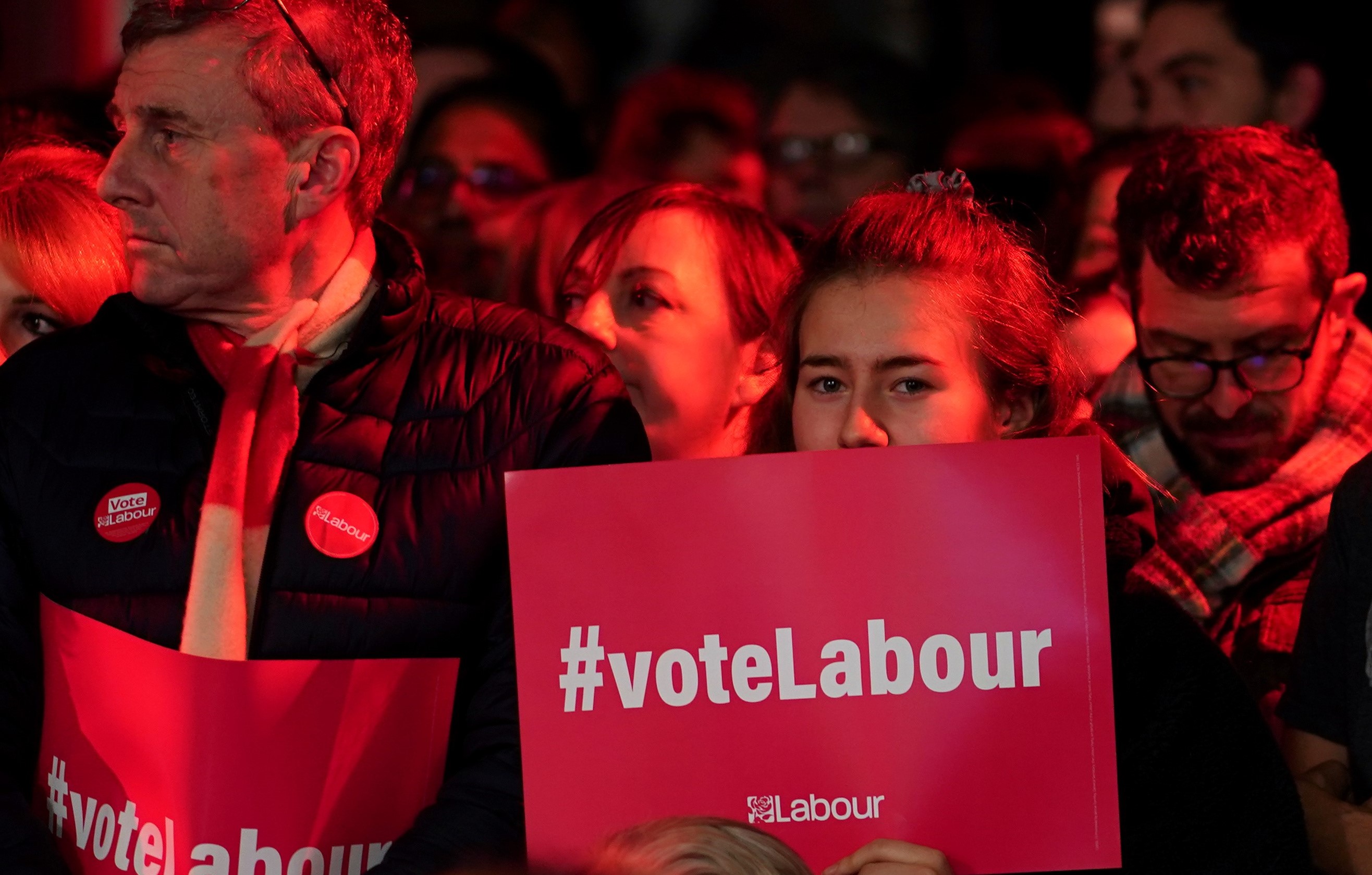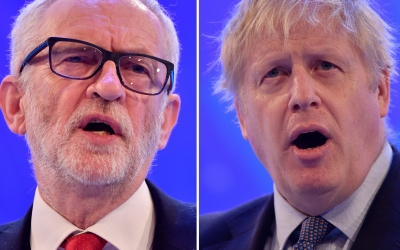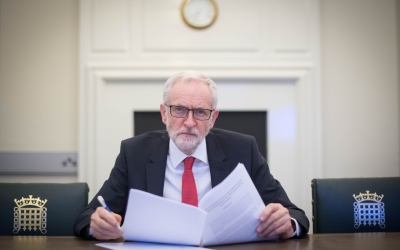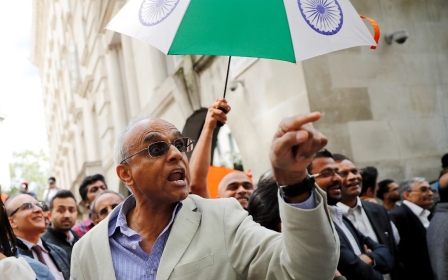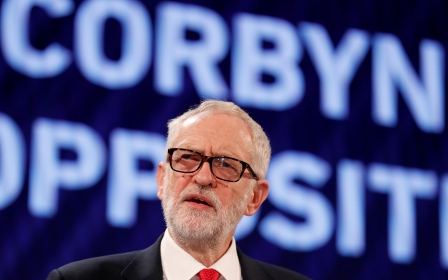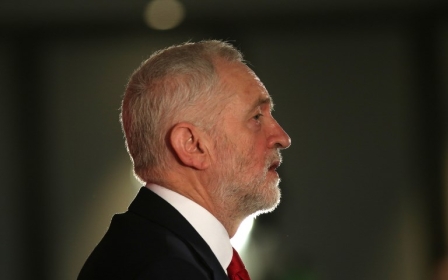UK election: Why I will vote for Jeremy Corbyn
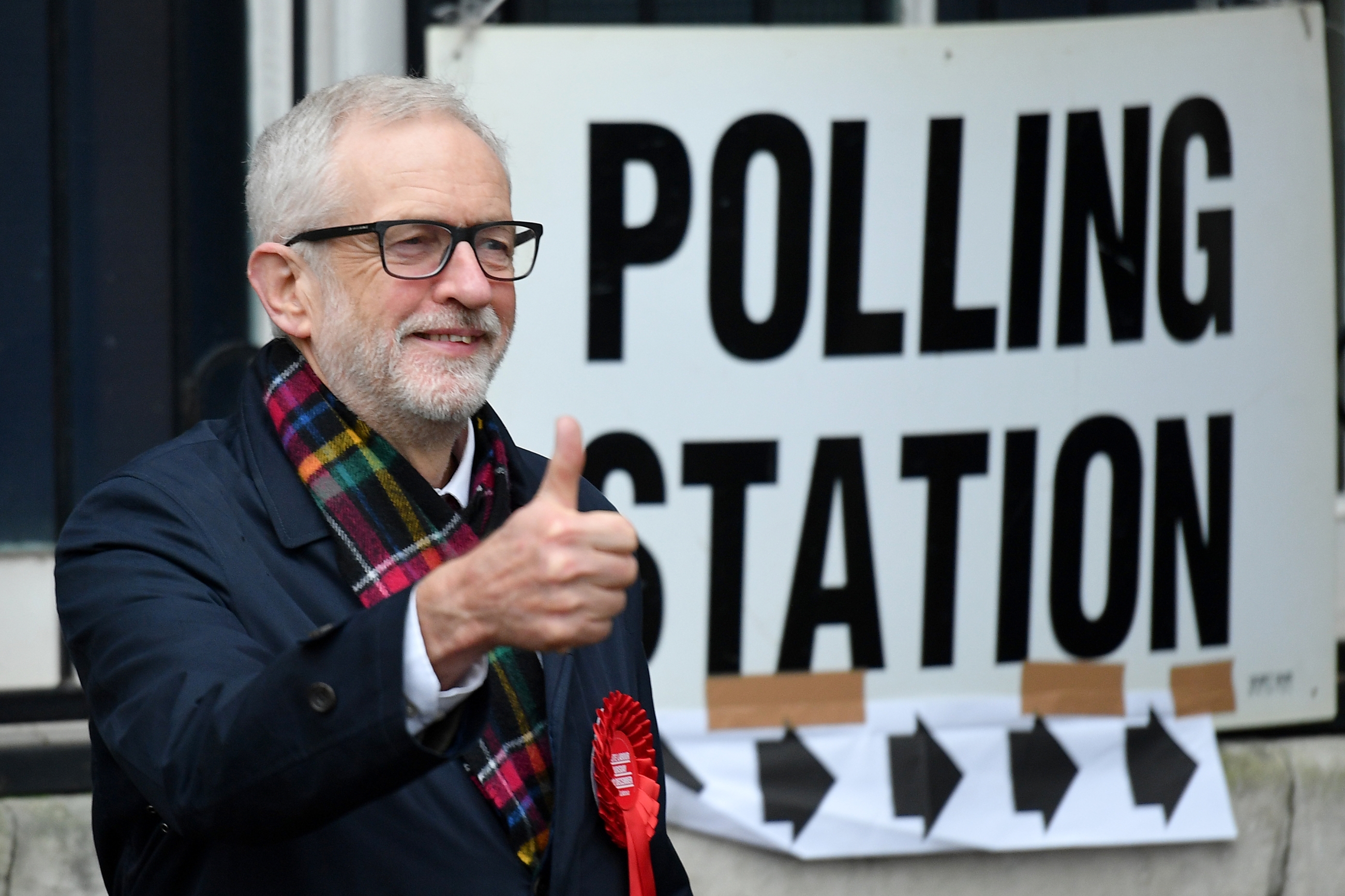
Last Monday, after several failed attempts, I finally got a chance to speak to the Labour party leader Jeremy Corbyn about the blatant unfairness of this winter’s general election.
I raised the blatantly biased media coverage, the Tory partisanship of the BBC, the barrage of lies spat out by Conseravtive party leader Boris Johnson and his debased Conservative machine.
I don’t believe that any British political leader has ever had to face character assassination on such a scale and with such virulence as Jeremy Corbyn.
Waves and waves of it.
The smear campaign
New MEE newsletter: Jerusalem Dispatch
Sign up to get the latest insights and analysis on Israel-Palestine, alongside Turkey Unpacked and other MEE newsletters
Corbyn been repeatedly smeared as a demented Marxist set on the destruction of the British state.
According to Johnson, Corbyn wants to close down MI5, disband the army, end home ownership and supported Vladimir Putin over the Skripal poisonings in Salisbury.
I don’t believe that any British political leader has ever had to face character assassination on such a scale and with such virulence as Jeremy Corbyn
All untrue. It goes on day after day. Page after page of the British press.
Some politicians would have been broken by this ceaseless campaign of vilification. Corbyn has manfully carried on. I was struck by the 70-year-old Labour leader’s mild and thoughtful calm as he spoke about the need for a profound change in media culture.
There was no self-pity or recrimination as I pointed out how Tory lies are now being spat out, tens of thousands of them, in hugely expensive social media campaigns.
The Tories put out thousands of advertisements over Facebook in the first three days of December, 88 percent making claims that the fact-checking agency Full Fact has already found to be misleading (the same study found that Labour had put out no lies at all).
There was just a sensible, matter-of-fact response from the Labour leader. Corbyn stressed that any political party is capable "of putting out a statement that turns out to be incorrect" but he called for a "system of independent verification". He went on: "At the moment there is no sanction at all and that is fundamentally what the problem is."
Lies and racism
It’s not just lies. Boris Johnson has been allowed to get away with a record of making racist comments about black people, foul remarks about homosexuals, hateful remarks about the poor and vulnerable and repeated attacks on Islam and Muslims, as well as adopting a set of policies on Brexit that could easily lead to the disintegration of the United Kingdom, and economic collapse.
Boris Johnson has been allowed to get away with a record of making racist comments about black people, homosexuals, the poor and vulnerable and Muslims
He’s not even remotely held to account for any of this. Meanwhile entire forests have been chopped down to make room for wave after wave of virulent attacks on Corbyn.
It’s important to pause and consider the reasons for this double standard.
Jeremy Corbyn is the first leader of a major political party to be a radical. Not - repeat not - a revolutionary, as his enemies assert.
In fact - as I have argued before in Middle East Eye, Corbyn stands in a line of English radicals dating back to John Lilburne during the civil war, Thomas Paine, Keir Hardy, Aneurin Bevan (founder of the NHS), Michael Foot and Tony Benn.
The historian AJP Taylor gave a course of lectures about them, The Troublemakers, which he turned into a wonderful book explaining that the establishment has always hated radicals such as Corbyn.
The establishment
And the establishment is determined to stop Corbyn now. This is because he stands for a set of ideas and beliefs which would set a new agenda in British politics. Don’t forget that, if he becomes prime minister, Corbyn would be the first to do so from outside the British mainstream since Margaret Thatcher in 1979.
The establishment threw its weight behind the three catastrophic foreign policy interventions of the 21st century: Afghanistan, Iraq and Libya. The Foreign Office, the Secret Intelligence Service (MI6), the CIA, the BBC and practically all of Fleet Street were in favour.
Corbyn opposed them all. The world would be a much safer place today if his advice had been taken.
That’s why it stuck in my gut late last month when Richard Dearlove, chief of MI6 in the run-up to the Iraq invasion, said that Corbyn would be a danger to national security. Had Dearlove been doing his job at the time, MI6 would have warned against the invasion.
To move onto a current example, Corbyn has been one of the very few British politicians to make an issue of British complicity in the war in the Yemen - a humanitarian calamity which Johnson did nothing to avert when he was foreign secretary.
Foreign policy disasters
Corbyn was also one of a handful of British politicians to emerge with any credit from the brutal persecution of the Rohingya Muslims by the Myanmar regime. Britain was penholder at the UN with special responsibility for Myanmar. Corbyn appealed to Aung San Suu Kyi to stop the massacres.
No question that his call came too late. But Johnson’s Foreign Office defended the perpetrators of murderous violence, meaning that the prime minister has serious questions to answer about British complicity with two of the most serious crimes against humanity of the past decade.
Nothing has been made of this during the general election.
It should have been. Historians will look back and wonder why not. I am not a natural supporter of Corbyn. But he is one of a handful of British politicians who has repeatedly tried to do the decent thing. He deserves credit for the determined and morally courageous way he’s conducted himself during the British election campaign, which ends today.
There will have to be a reckoning. Britain used to be able to boast of our fairness and decency. That’s been missing over the last few months. "I get the impression," Corbyn told me as our conversation ended, "that the pressure of news editors on journalists is to skip the checking, skip the verification and get the story out there and take a chance on it being true."
There will have to be an inquest after this election. Jeremy Corbyn has asked deep and relevant questions about what values Britain stands for and represents in the 21st century.
In response he’s been drowned out by a wave of abuse, vilification and lies.
I will vote for him today.
The views expressed in this article belong to the author and do not necessarily reflect the editorial policy of Middle East Eye.
Middle East Eye delivers independent and unrivalled coverage and analysis of the Middle East, North Africa and beyond. To learn more about republishing this content and the associated fees, please fill out this form. More about MEE can be found here.



